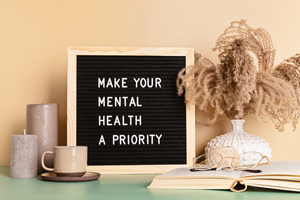Work-related stress is a common issue that many individuals face in today’s fast-paced and demanding work environments. The CDC explains that it can arise from various factors, including high workloads, tight deadlines, and challenging workplace relationships, ultimately leading to a decline in both personal well-being and professional performance.
Unlike burnout, which is characterized by emotional exhaustion and detachment, work-related stress can manifest as anxiety, irritability, and a constant feeling of being overwhelmed. Fortunately, therapy offers structured approaches that can help individuals manage and gain control over their work-related stress.
What therapy is best for managing work stress?
Several therapeutic approaches that the CDC explains are effective in managing work-related stress, including Cognitive Behavioral Therapy (CBT), behavioral therapy, and mindfulness practices.
CBT focuses on identifying and changing negative thought patterns that contribute to stress, enabling individuals to reframe their perceptions of work challenges. Behavioral therapy emphasizes modifying specific behaviors that may exacerbate stress, fostering healthier responses to work demands.
Mindfulness practices, on the other hand, teach individuals to stay present and cultivate awareness of their thoughts and feelings, reducing anxiety and promoting a sense of calm. The primary purpose of these therapies is to help individuals gain control over their work-related stress and improve their overall well-being.
Through therapy, individuals learn to recognize their stress triggers, process their emotions effectively, and develop practical strategies to navigate workplace challenges, ultimately leading to a more balanced and fulfilling professional life.













